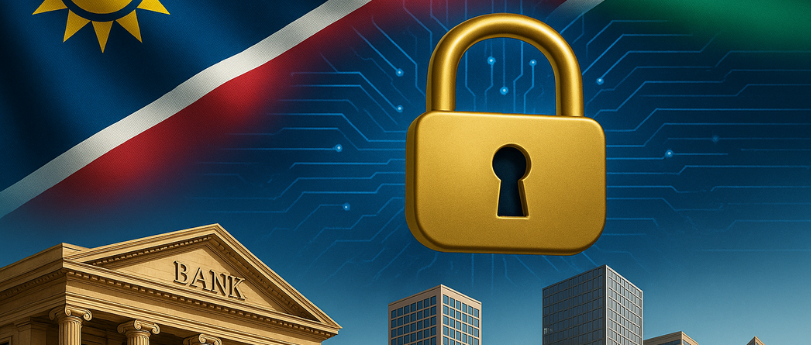Why Namibian Financial Institutions Can’t Afford to Ignore Cybersecurity
Namibia doesn’t need to wait for cyber laws to protect its financial system. A recent regulation from South Africa offers a clear, tested roadmap our businesses can use now to reduce risk, strengthen defences, and lead by example.
5/23/20252 min read


Namibia’s financial sector is at a turning point. As threats like data breaches, ransomware, and phishing attacks continue to grow, our institutions face a choice: wait for regulation or act now to protect themselves. Fortunately, there’s a model already in place. South Africa has introduced a comprehensive cybersecurity standard, and while it isn’t legally binding here, it provides practical steps Namibian organisations can start applying today.
The regulation, developed by South Africa’s Financial Sector Conduct Authority and Prudential Authority, sets out how institutions should prepare for, respond to, and recover from cyber incidents. Namibian banks, insurers, pension funds, and financial service providers can use it as a ready-made framework to assess and improve their own systems.
It includes essentials like secure system configuration, access controls, malware protection, and patch management. Just as important, it requires formal cyber strategies, tested response plans, and clear recovery procedures, elements many local organisations are still missing.
This is especially relevant for smaller Namibian firms, who may assume they're not targets. In reality, cybercriminals often exploit those with the weakest defences. The South African framework is proportional, meaning it applies regardless of company size. That mindset shift, cybersecurity as everyone’s responsibility, is one Namibia urgently needs.
Another key point: the regulation mandates awareness training for all staff and demands that third-party vendors meet the same standards. These are immediate steps Namibian businesses can take to reduce vulnerabilities across their networks.
Using this as a guide isn’t about copying policy, it’s about being proactive. Namibia can lead by choosing to strengthen its financial sector before a crisis forces change. Every institution has the chance to review its risks, boost its resilience, and build public trust, starting now.
While these measures target regulated entities, public vigilance remains vital. Individuals are advised to stay alert, avoid sharing personal information with unverified sources and contact their banks directly if anything seems suspicious. Cybersecurity is a shared responsibility, and small habits can prevent major harm.
South Africa’s move is a strong step toward safer financial systems and a more resilient digital future. Other countries in the region may soon follow.


